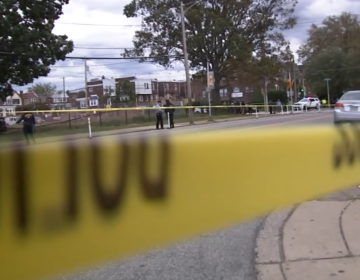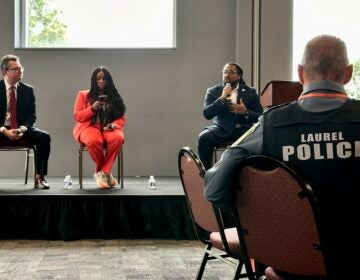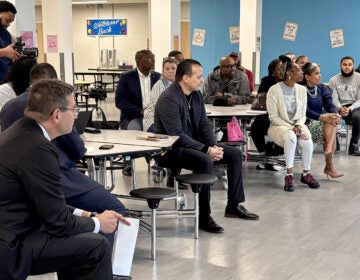‘Who am I in this situation?’: ‘Stop the Bleed’ trauma first aid class targets gunshot injuries
“Stop The Bleed” teaches emergency responsiveness, and many Philadelphians are training to combat gunshot wounds.
Listen 1:10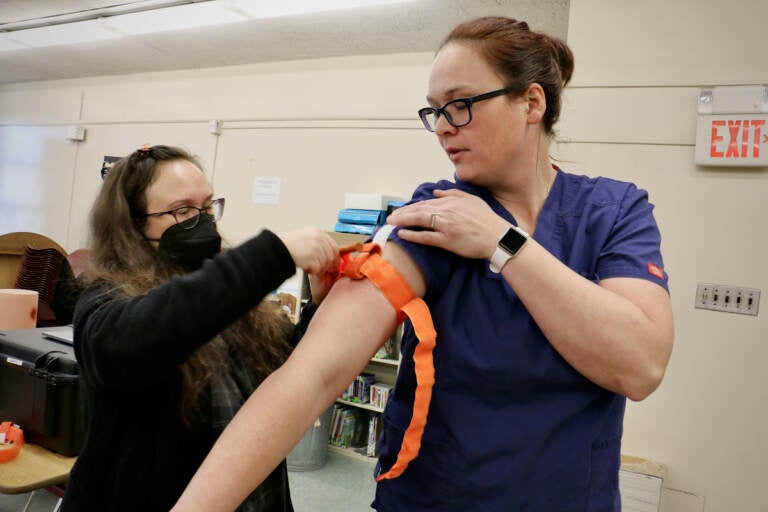
Registered nurse Sarah Misuro (right) teaches Kaz Burok how to apply a tourniquet during a Stop the Bleed class at Nicetown-Tioga Library in North Philadelphia. (Emma Lee/WHYY)
Community members and staff of the Nicetown-Tioga library recently gathered for “Stop the Bleed,” a trauma first aid class.
“I’m not telling everybody that they need to go out there and deal with blood and stuff like that,” said Sarah Misuro, the registered nurse who teaches the class.
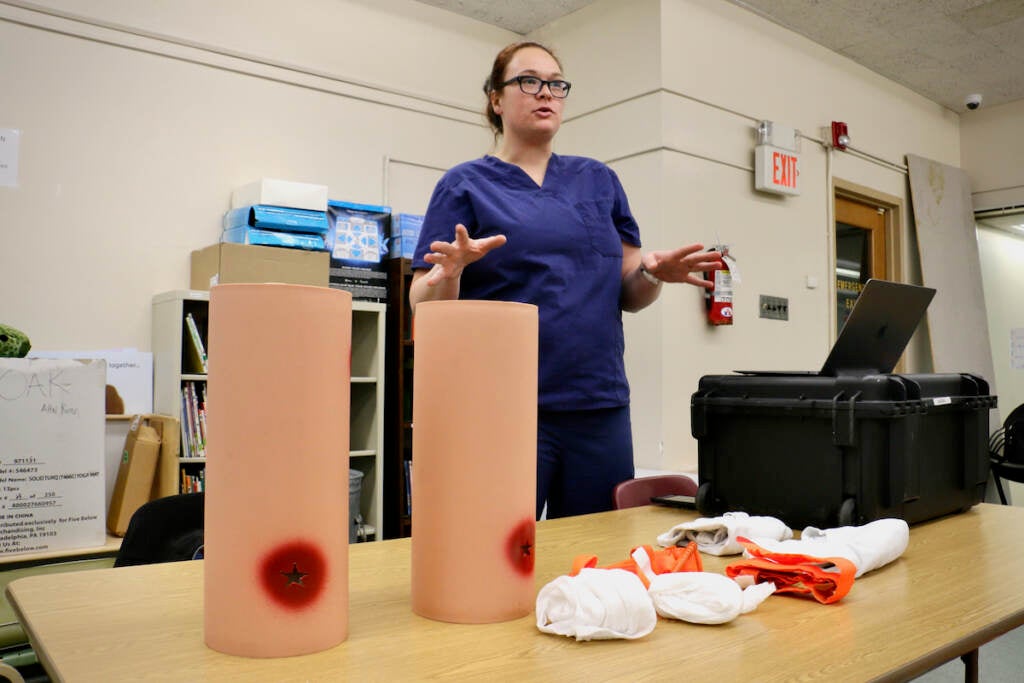
Dressed in blue scrubs, she demonstrated how to pack a gunshot wound using a T-shirt. She said, “That’s not for everybody. If you learn anything from this course, it should be, ‘Who am I in that situation?’”
Misuro, the trauma education, prevention, and outreach coordinator for Einstein Medical Center, trains people to be the stop-gap between victims and emergency services. Misuro had previously worked in Philadelphia emergency rooms for 16 years.
She begins each class by breaking down the “ABCs” of delivering aid, including making sure that 911 has been alerted and that the surrounding area is safe.
Dawn Silva, a security guard for the Nicetown-Tioga Library and other venues in Philly, said that being prepared is important to her. “I now own a tourniquet and I know the ABCs of dealing with a bleed [and] hopefully saving someone’s life. I pray that I never will have to. But in the event that I do, at least I will be educated on it.”
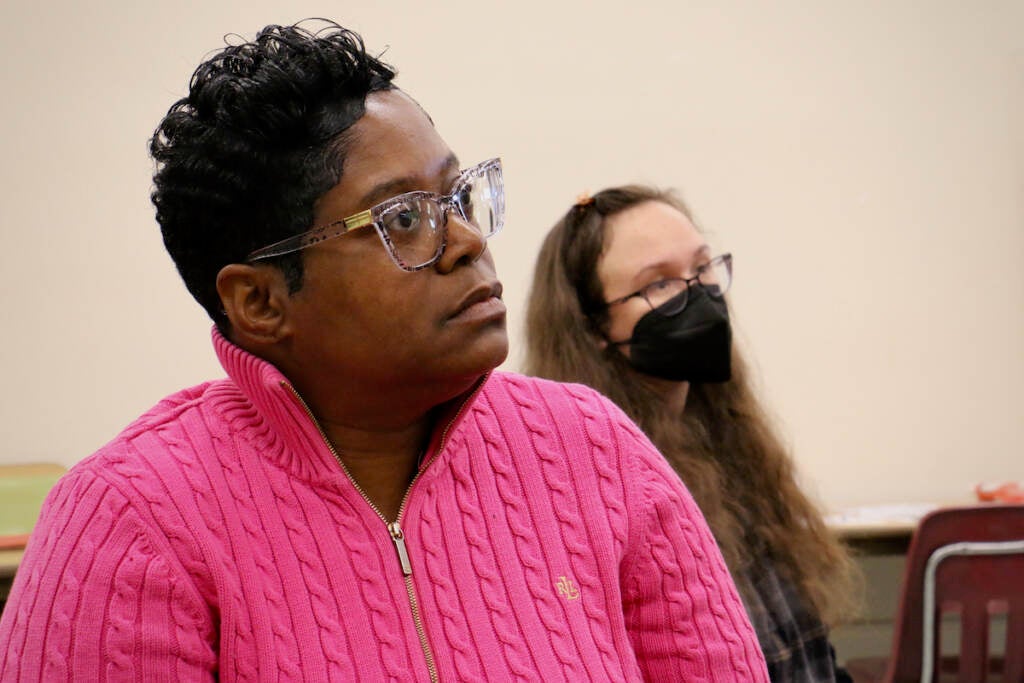
Misuro says that demand for the “Stop the Bleed” course has increased dramatically in the last several years, even though Stop the Bleed trainings cover more than gunshot injuries.
“I think that as more people are personally affected by violence — and gun violence especially — that they want to know how to help people,” she said after the class. “This course offers some direction and how to help somebody. It’s not curative, you know, it doesn’t solve gun violence, but it empowers people to have some resources.”
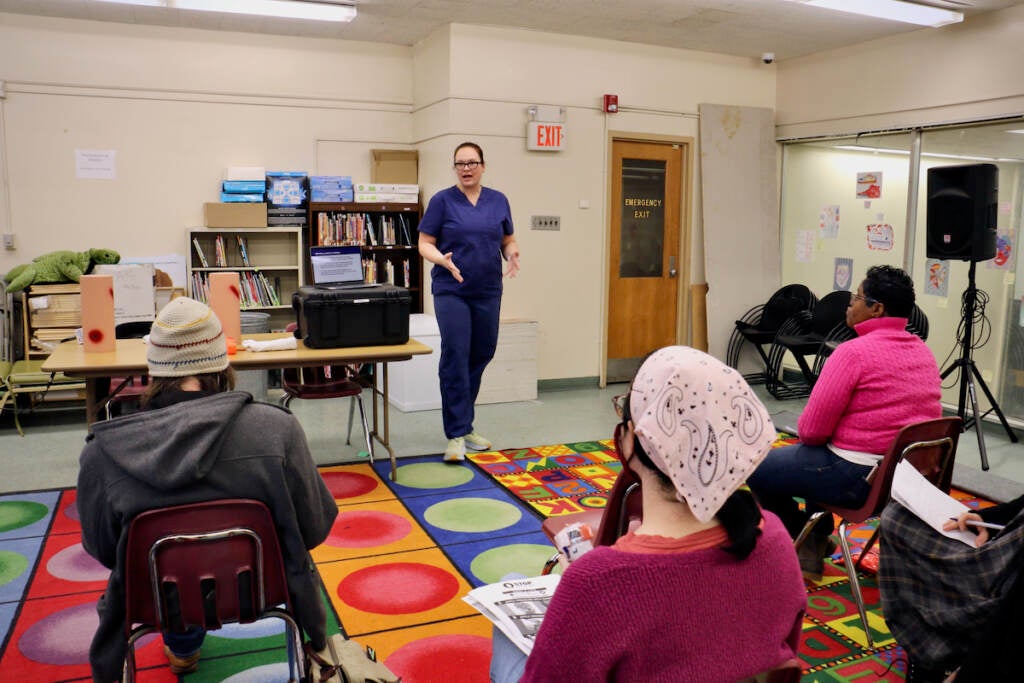
A medical tourniquet is a great addition to any first-aid kit, Misuro said.
“Don’t ‘MacGyver’ a tourniquet,” she said as the crowd chuckled. “Don’t get a belt. Don’t get creative. If you have a tourniquet, use it. But if you don’t have that, just hold pressure. People who use belts and stuff like that, spend more time fiddling with the belt than just holding pressure; they’re not as effective as commercial products.”
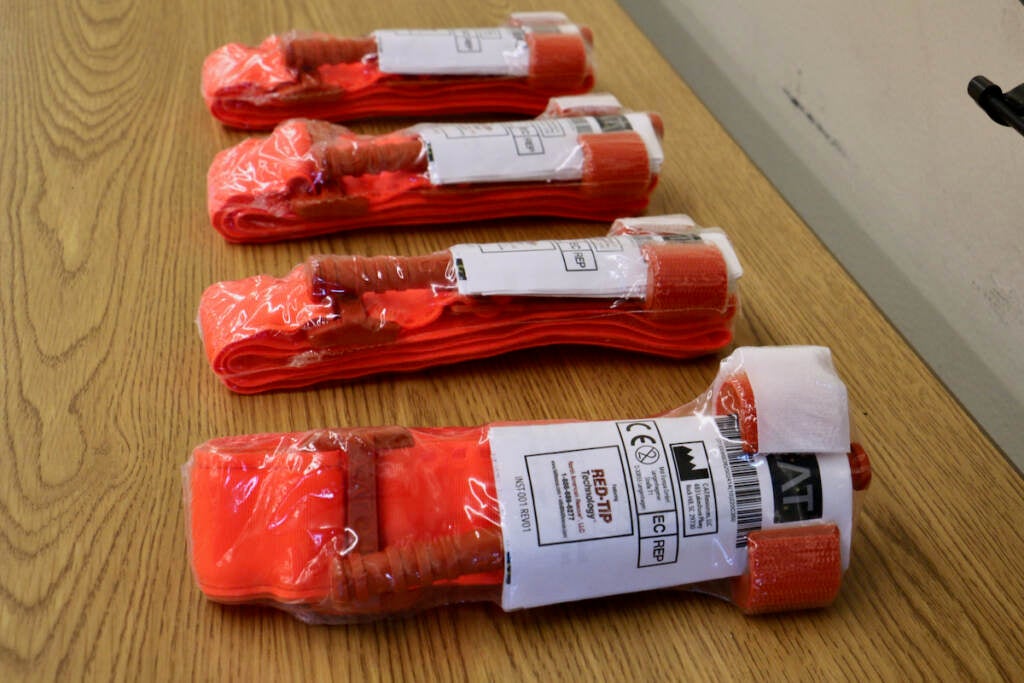
Each participant practiced their new skills on Misuro and received a tourniquet of their own, as well as a certificate.
“I took [the class] because as a person that has been doing security for over 26 years, this is my profession,” Silva said. “This is what I love, I’m a people person and I care about people. This class really helped me to be able to save a life [and] I’m grateful for the knowledge that was given in this class.”
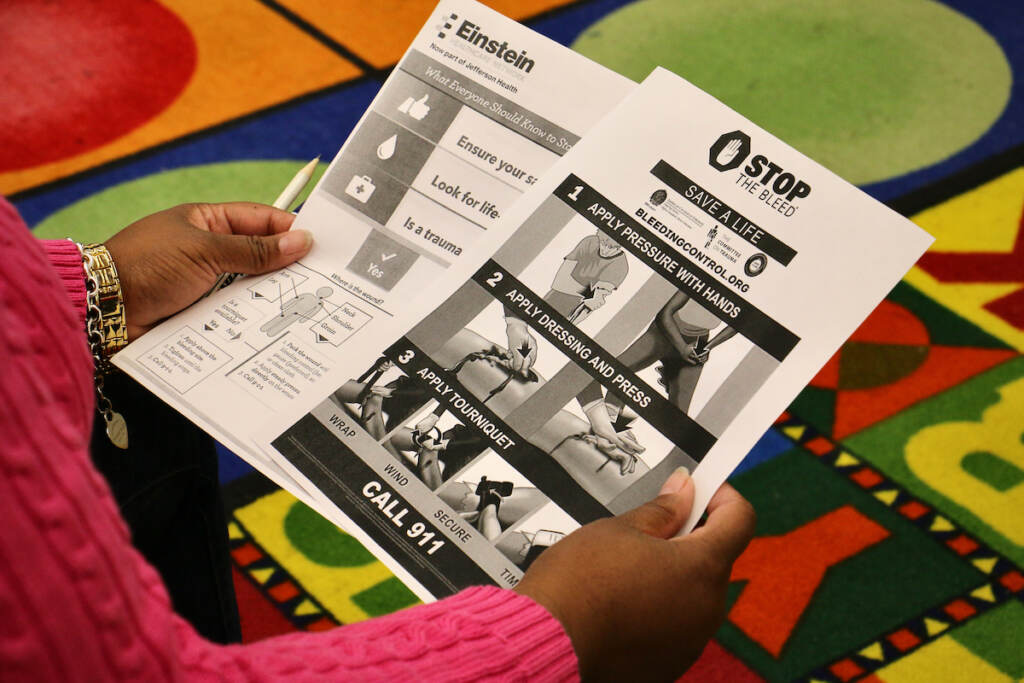
Misuro said that the instruction is just one piece of helping the city she loves.
“[This] doesn’t fix violence, it doesn’t fix trauma, but it starts a conversation. People can realize what they can do in a situation. And that’s the small piece that I bring to the table. And it’s not too small,” she said. “It’s something.”
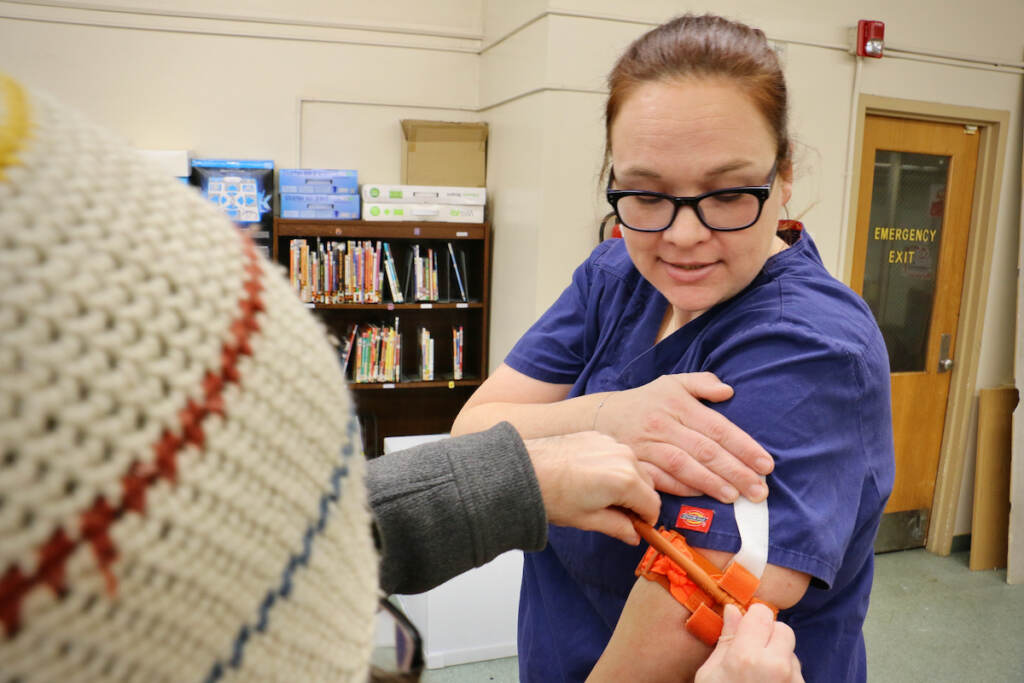
According to Stop the Bleed’s website, there are currently five in-person trainings scheduled in Philadelphia through February. Additionally, Stop the Bleed offers an online course.
If you or someone you know has been affected by gun violence in Philadelphia, you can find grief support and resources online.
Sam Searles is a Report for America corps member covering gun violence and prevention for WHYY News.
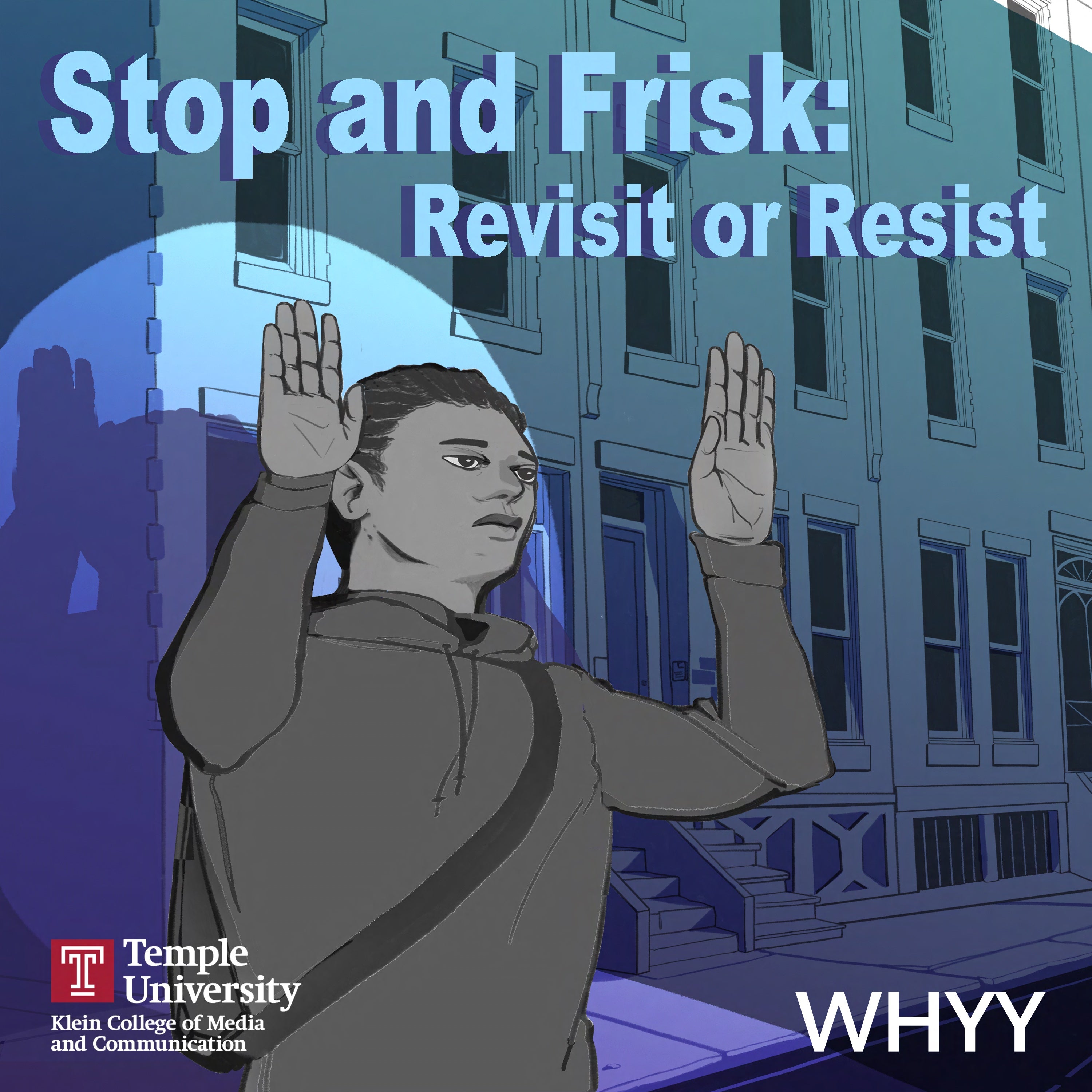
Stop and Frisk: Revisit or Resist
WHYY is your source for fact-based, in-depth journalism and information. As a nonprofit organization, we rely on financial support from readers like you. Please give today.


